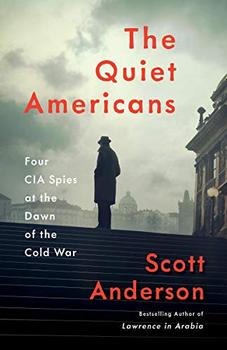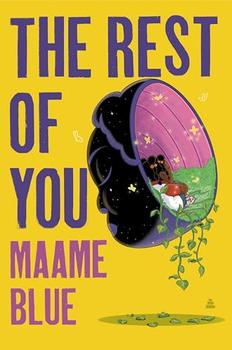Summary | Excerpt | Reviews | Beyond the book | Read-Alikes | Genres & Themes | Author Bio

Coming of Age in the CIA
by Amaryllis FoxLife Undercover, a riveting true-adventure memoir, reveals how and why a young woman decides to work for the Central Intelligence Agency. In clear, elegant prose, Amaryllis Fox describes an unconventional international childhood and a series of choices that lead her to become a CIA field operative. In addition, she covers gritty details of spy craft and takes readers on a journey that isn't normally possible without top security clearance and years of training and sacrifice. Through excellent storytelling, she explains her yearning to make a real difference in the world by preventing terror attacks, but also reflects on her inner doubts.
Fox, born in 1980, writes about growing up with major world events shaping her life view. At age eight, she loses her friend Laura, who is killed on an aircraft bombed by Libyan terrorists over Lockerbie, Scotland. Her father coaches her to read the newspaper in order to better understand global occurrences. After the Berlin Wall is dismantled in 1989 and diplomatic developments lead to the thawing of Cold War relations, Fox and her brother Ben are able to spend a school break with their father in Moscow, where he is working as an economist in the emerging free market. They range relatively unsupervised, eager to absorb the culture, language, current events and setting. Later, when Fox joins the CIA, she will notice panels of the Berlin Wall at headquarters, standing as artifacts of totalitarianism fallen to freedom.
During high school, Fox is assigned a geography research project on Aung San Suu Kyi, who won the Nobel Peace Prize in 1991 for her pro-democracy work in Burma (also known as Myanmar). Fox dives deeply into her project, inspired by this woman living on the other side of the world:
I stick a picture of her on my wall and stare at it. There's steel in her eyes, but she wears a flower in her hair. This feminine warrior for peace. I've never seen anything like her before. Softness and strength. One single conscience that's brought an entire army to its knees. I want to hear my calling as clearly as she does hers.
Following this experience, Fox defers college entrance and spends part of a gap year volunteering at a refugee camp in Thailand. There she befriends exiled Burmese dissidents who are organizing a clandestine mass action for democracy. She plots a way to gain entry to Burma by posing as the wife of a British filmmaker. The two pretend to be on honeymoon but are actively engaged with witnessing citizen unrest and government response. They gain an interview with Suu Kyi, who is then under house arrest, and smuggle a film out of the country for broadcast. Later, while in training at the CIA, Fox will fine-tune her abilities to gain trust, interview complex subjects and cover her tracks in order to remain undercover.
For the time being, the precocious, privileged and determined Amaryllis goes on to enroll at Oxford, but remains restless for real action beyond its ivory towers. She studies international relations, joins the debating society and works with Bosnian orphans—her first encounter with children traumatized by the effects of war. She is visiting her mother in Washington, D.C. when the Pentagon and World Trade Center are attacked on 9/11, and she witnesses the disruption and emotional impact of the event, which stay with her: "When I get back to Oxford, time and again, I wake up swearing I smell smoke." In 2003, while in grad school at Georgetown, Fox is recruited by the CIA, where she will work for almost a decade.
The book includes fascinating details of Fox's training and her everyday work at the agency, ranging from a hot dog vending machine in the headquarters basement to how each operation is compartmentalized with layers of code names, secret contacts and bureaucratic labyrinths. (Some exact details have been changed to protect sources and intelligence.) Fox first holds a desk job investigating global arms trading, then is selected for clandestine training and assigned to the Iraq counterterrorism desk. She describes her duties there:
It's emotionally grueling work. My first task is to watch the same beheading video a hundred times in a row, focusing on a different grid square of the image each time to note any overlooked clue it might give to the location of the crime.
The memoir also excavates nuances of human relationships. Due in part to agency secrecy protocols which prohibit living with a foreign national, Fox marries her college boyfriend, Anthony, who is South African. The marriage eventually disintegrates due to her intense work schedule and Anthony's inability to completely "know her truth." At the culmination of her training, she begins a relationship with another recruit, Dean Fox. They marry and move to Shanghai, but are often deployed on different missions. They live dangerous lives, frequently using false identities while under surveillance during American-led wars in Iraq and Afghanistan. Secrecy prevents open communication and the marriage is full of emotional as well as geographic distance.
In the meantime, Fox grows disenchanted with government service while analyzing internal memos that prove some of the wrong people are being detained and interrogated. She also questions her role in manipulating weapons trafficking deals when she develops empathy for recruited assets and foreign targets. As she traces global terror networks through Europe, Asia and the Middle East, she understands there are no easy answers. The United States uses drones to target and kill al Qa'ida and Taliban operatives, but sometimes harms innocent civilians. The al Qa'ida fighters use improvised bombs to push back, trying to expel U.S.-allied forces from their occupied countries.
Motherhood opens up myriad physical and emotional vulnerabilities for Fox, further complicating her relationship to her work as cloak and dagger meet diaper bag and baby pack. "Each time, I weigh the danger of wherever I'm going against the danger of leaving my infant daughter without me in a hostile country, where the housekeeper works for the security service," she reflects. Her emotional truth resonates one afternoon while she's in Karachi, Pakistan, interviewing a local contact as his small child plays in the room. She mentions that she has an infant daughter, and the two find common ground despite the imminent bomb threat that they have met to discuss from opposite vantage points.
Eventually, the combination of Fox's fragile-edged marriage and her high-tension work erodes her sense of purpose and she calibrates a path away from the CIA. Her memoir is part of a conversation that she continues today in her work as a public speaker, philanthropist, filmmaker and peace activist. Life Undercover will appeal to fans of true stories by intrepid heroines like Cheryl Strayed and Michelle Obama as well as to current-affairs book groups and those who love espionage fiction.
![]() This review was originally published in The BookBrowse Review in January 2020, and has been updated for the
October 2020 edition.
Click here to go to this issue.
This review was originally published in The BookBrowse Review in January 2020, and has been updated for the
October 2020 edition.
Click here to go to this issue.

If you liked Life Undercover, try these:

by Ben Macintyre
Published 2021
The "master storyteller" (San Francisco Chronicle) behind the New York Times bestseller The Spy and the Traitor uncovers the true story behind the Cold War's most intrepid female spy.

by Scott Anderson
Published 2021
From the bestselling author of Lawrence in Arabia, a gripping history of the early years of the Cold War, the CIA's covert battles against communism, and the tragic consequences which still affect America and the world today.




I write to add to the beauty that now belongs to me
Click Here to find out who said this, as well as discovering other famous literary quotes!
Your guide toexceptional books
BookBrowse seeks out and recommends the best in contemporary fiction and nonfiction—books that not only engage and entertain but also deepen our understanding of ourselves and the world around us.